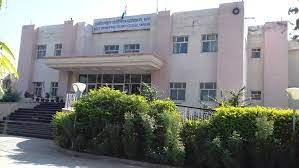Learn about the eligibility criteria and fee structure for the Diploma in Diabetology course, ensuring you're well-prepared for a career in diabetes healthcare.
Eligibility & Fee Structure for Diploma in Diabetology Course
Diabetes is a prevalent and chronic medical condition that affects millions of people worldwide. Managing diabetes and providing effective care to patients require specialized knowledge and skills. A Diploma in Diabetology is designed to equip healthcare professionals with the expertise needed to diagnose, treat, and manage diabetes effectively. In this comprehensive guide, we will explore the eligibility criteria for admission and the associated fee structure for a Diploma in Diabetology program.
Eligibility Criteria for Diploma in Diabetology
The eligibility criteria for a Diploma in Diabetology program may vary depending on the institution or university offering the program. However, there are common prerequisites and qualifications that most programs require. Here are the key eligibility criteria to consider.
-
Educational Qualifications: Candidates are typically required to have a healthcare-related educational background. This may include a Bachelor's degree in Medicine (MBBS), Nursing, Pharmacy, Dietetics, or a related field from a recognized institution.
-
Professional Experience (if applicable): Some programs may require candidates to have a minimum number of years of professional experience in a healthcare-related field. This requirement varies by program.
-
Medical Council Registration (for Doctors): Medical practitioners, such as doctors, may need to be registered with the relevant medical council or authority in their country or state.
-
Language Proficiency: For programs delivered in English or another language, candidates may be required to demonstrate language proficiency through standardized tests or other means.
Fee Structure for Diploma in Diabetology Programs
Understanding the fee structure is crucial for prospective students to plan for the financial aspects of their Diploma in Diabetology education. The fee structure for these programs can vary widely based on several factors, including the institution or university, program duration, delivery format (online or in-person), and location. Here are the key components of the fee structure.
-
Tuition Fees: Tuition fees cover the cost of instruction, course materials, access to faculty expertise, and clinical training (if applicable). The amount of tuition varies depending on the institution and program duration.
-
Registration Fees: Most programs charge a one-time or annual registration fee to cover administrative expenses related to enrollment.
-
Clinical Training Fees (if applicable): Programs that include clinical rotations or practical training may charge additional fees to cover the costs associated with these experiences.
-
Course Materials: The cost of textbooks, reference materials, and online resources may vary based on the program's requirements.
-
Examination Fees: Some programs may require candidates to pay examination fees for assessments and evaluations conducted during the program.
-
Student Services: Institutions may charge fees for student services such as library access, academic advising, and access to campus facilities.
-
Technology and Equipment: Students may need to have access to specific medical equipment, such as glucose meters and diagnostic tools, which may involve additional expenses.
 1 Years
1 Years
 Diploma
Diploma
 Science
Science
 Full Time
Full Time



 back
back

